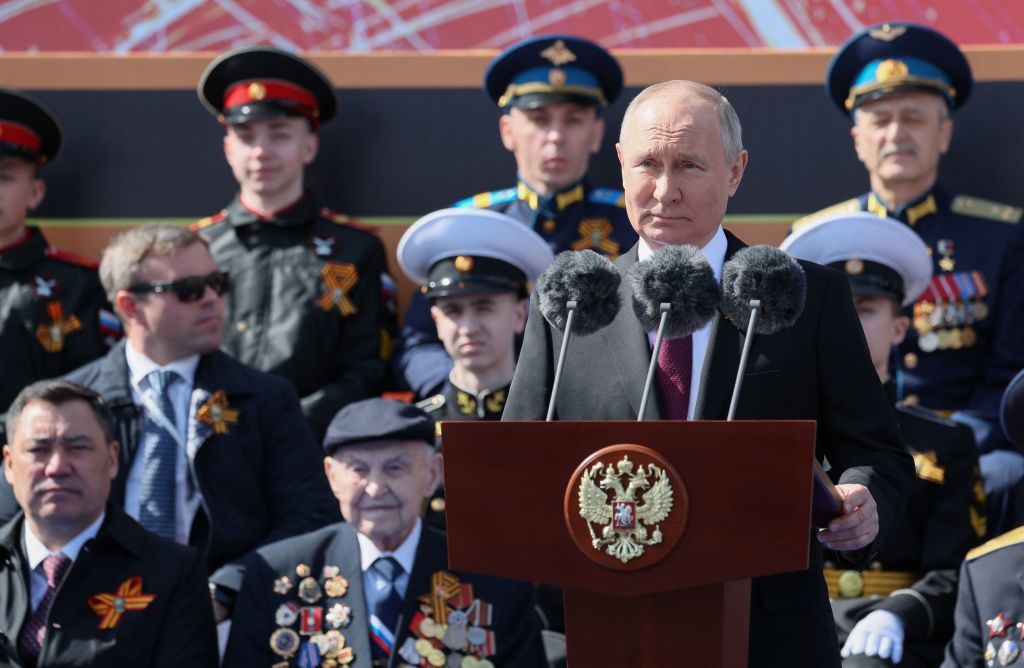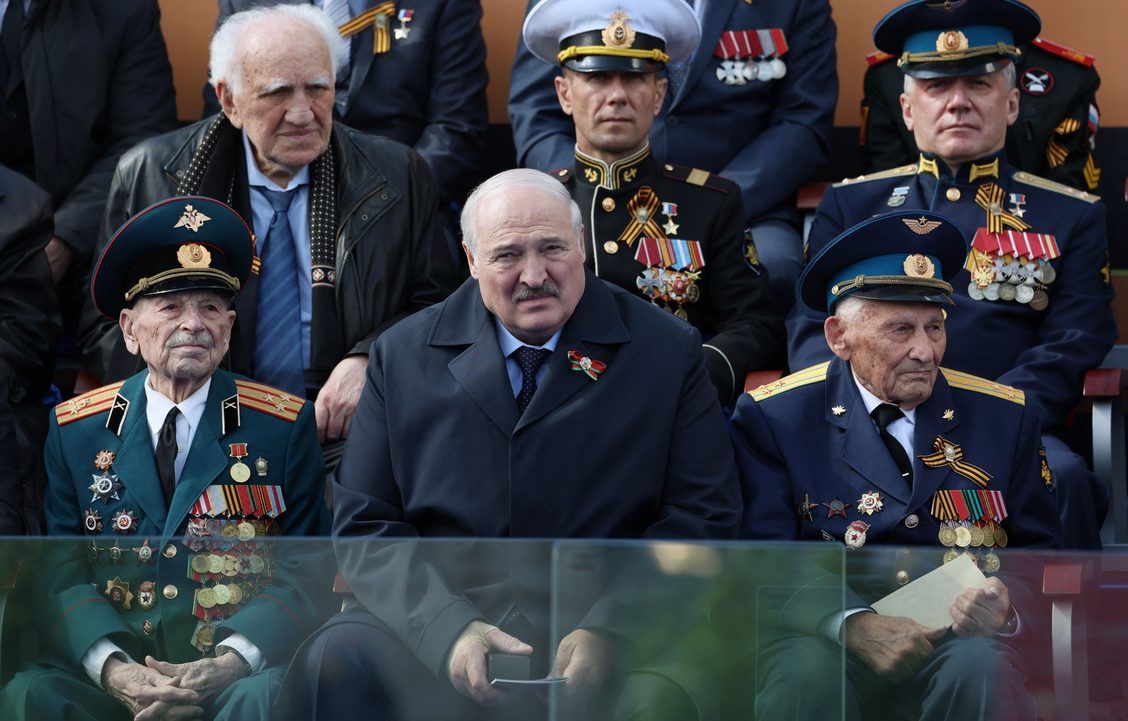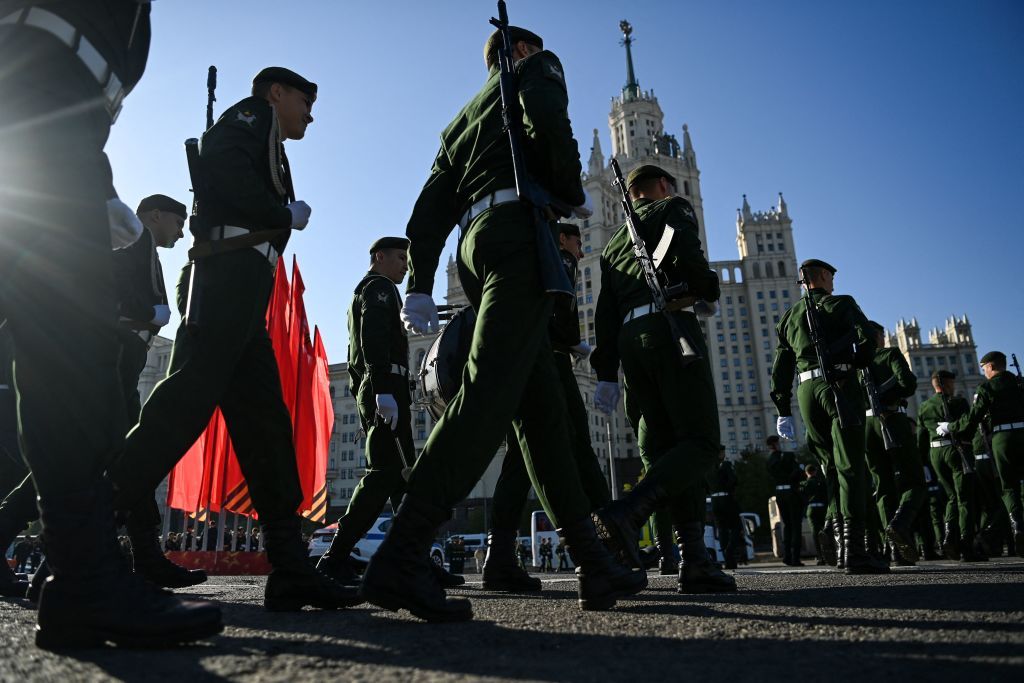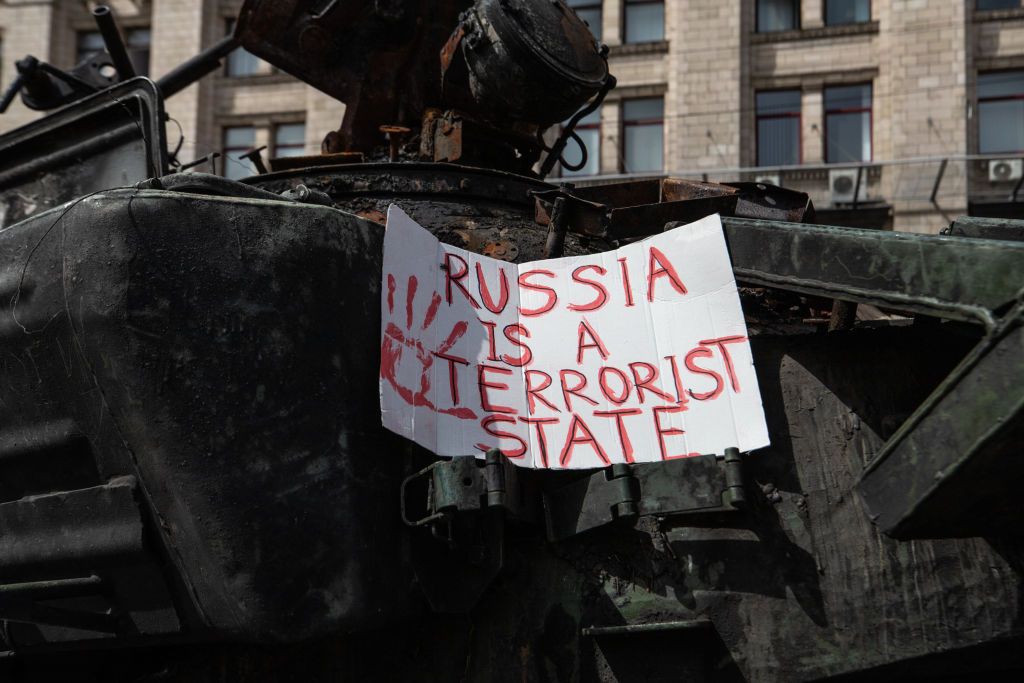Temur Umarov: Why did Central Asia’s leaders agree to attend Moscow’s military parade?

Editor’s Note: The opinions expressed in the op-ed section are those of the authors and do not purport to reflect the views of the Kyiv Independent.
Russia’s annual Victory Day holiday on May 9, when the country marks the Soviet victory over Nazi Germany in World War II, was expected to be a fairly low-key affair this year. Just three days before the festivities, which included a military parade on Red Square, only one high-ranking guest was due to attend: Kyrgyz President Sadyr Japarov.
On the eve of the parade, however, it emerged that the presidents of four other Central Asian nations had also arrived at the last minute, along with Armenian Prime Minister Nikol Pashinyan and Belarusian President Alexander Lukashenko.
For over a year now, following Russia’s full-scale invasion of Ukraine last February, the Central Asian leaders have tried to avoid the issue of the war. So why have they now risked both their reputations and their safety (after all, there were drones flying over the Kremlin the week before the parade) to attend Moscow’s military festivities in what is being seen by many as a gesture of support for Russia?
Even before the war, the Central Asian presidents preferred to celebrate May 9 in their own countries: any holiday that unites the nation is seen as a way of strengthening their relatively young statehood. Some also tried to use the Soviet-era holiday to make the point that the major victory of the 20th century had not been achieved by Russia alone.
Each of the Central Asian capitals held its own military parade and competed with Russia and among themselves to stump up the most lump-sum payments for veterans. Sometimes their leaders still attended the parade in Moscow – that was never a problem.
Russia’s full-scale invasion of Ukraine changed everything. Russian President Vladimir Putin began to use Victory Day to justify his aggression, comparing Russia’s historic fight against the Nazis to its current so-called “special operation” against the Ukrainians.
This year’s parade inevitably resulted in images of the Central Asian leaders sitting alongside Russian troops who have been fighting in the war and applauding Putin’s speech about a “sacred struggle for the motherland.” Those images will make it much harder to insist that the countries of Central Asia do not support Russia's aggression against Ukraine.
This conclusion was, of course, perfectly clear to those involved, which is why the Central Asian presidents did not initially intend to be there, as evidenced by official statements. Two weeks before the parade, Kazakh President Kassym-Jomart Tokayev announced that on May 9, he would commemorate those killed in World War II in the capital Astana, while Uzbek President Shavkat Mirziyoyev ordered a fireworks display in Tashkent on May 9, with the clear intention of attending himself.
Nor did Moscow itself even intend to invite anyone at first. On April 24, Putin’s spokesman Dmitry Peskov said that since it was not a big anniversary this year, no “special invitations” had been sent to anyone. Only Japarov’s visit was planned in advance: both the itinerary and the makeup of the impressive official delegation were made public.
It seems, therefore, that everything in Russia is now conducted like a special operation – even invitations to a parade. “Special invitations” were issued one after another just a few days before the parade in the form of phone calls from Putin, as reported on the websites of Tajik President Emomali Rahmon on May 5 and Turkmen President Serdar Berdymukhamedov on May 7. Mirziyoyev and Tokayev’s attendance, meanwhile, was announced with photographs of them exiting their planes in Moscow.
In all likelihood, with the exception of Japarov, the Central Asian presidents initially managed to politely decline the invitation to Moscow. But when Putin called them, it became not only difficult to do so, but also dangerous.

All of the Central Asian nations are proud of their multi-vector foreign policy, and relations with the West are just as important to them as with Moscow or Beijing. Now that Russia and the West are on the verge of war, it has become far trickier for Central Asia to maintain its partnerships with both sides. The last few years have shown that when the West imposes sanctions against a country, they are observed by everyone, including China.
Accordingly, since the invasion, Central Asia’s leaders have tried to strike a balance. None of them have recognized the territories annexed from Ukraine as part of Russia, but nor have they publicly criticized Putin or condemned the war. They have all agreed to comply with sanctions, yet have made no real efforts to stop Russia from using their territory to circumvent the restrictions.
It’s a precarious balance. Much to Moscow’s annoyance, Western delegations have repeatedly traveled to Central Asia to advise local authorities on sanctions compliance, and have threatened secondary sanctions for failure to comply. Moscow has responded with veiled and asymmetrical threats, such as halting exports of Kazakh oil to Europe or prohibiting the import of products from Eurasian Economic Union countries, supposedly over GMOs. Central Asia’s leaders are left to decide for themselves how much of this is coincidence, and how much a response to their statements and actions.
Therefore, the deciding factor in the presidents’ visit to Moscow was likely that the West’s actions are predictable, while Moscow’s are not. Quite simply, taking part in Moscow’s Victory Day celebrations may have looked bad, but Washington and Brussels were unlikely to impose sanctions simply for attending a parade, while the potential consequences from Moscow of refusing to attend were hard to predict.

There were also pragmatic reasons for visiting Moscow. Contrary to expectations, far from severing ties with Russia, Central Asia actually drew closer to it in 2022. The reality is that it can be profitable to be located next door to a giant, isolated economy and diplomatic pariah.
Firstly, Central Asian companies have made record profits from the disappearance of Western imports from the Russian market. Exports from all five Central Asian countries to Russia soared in 2022.
Secondly, Central Asia is becoming a financial hub for Russians moving their savings out of Russia. Last year, more than $770 million was transferred from Russia to Kazakhstan – an almost sevenfold increase from 2021. Transfers to Uzbekistan, meanwhile, more than doubled to $17 billion.
Thirdly, Central Asia is now the focus of far more international attention than ever before, with Western countries trying to persuade the region not to help Russia in any way, and Moscow trying hard to stop it from drifting away.
Recognizing that this attention is largely the result of their proximity to Russia and will not last forever, Central Asia’s leaders are trying to milk the current situation for all it is worth. Accordingly, individual actions should not be interpreted as either definitive support for Russia or a move to sever relations with it.
Central Asia’s political elites view the invasion of Ukraine through the prism of their own interests, top of which is the preservation of their own regimes. For this reason, they will continue to show loyalty to Putin, attending parades with him and periodically praising Moscow in public speeches. It might look like an attempt to have it both ways, but this is the survival strategy the Central Asian regimes consider most likely to work.
















